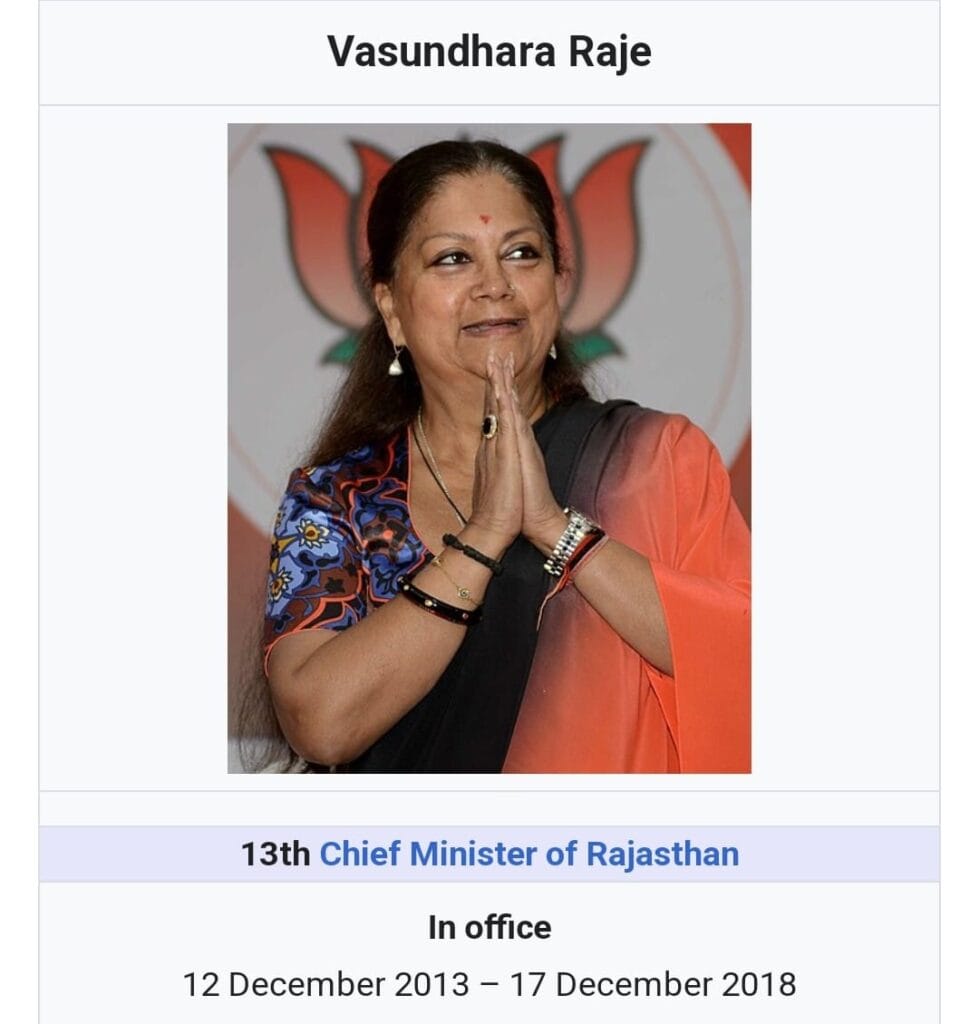In April 2025, former Rajasthan Chief Minister Vasundhara Raje’s comments on the water scarcity in Jhalawar district sparked a significant political controversy, drawing attention to the state’s persistent water management challenges and igniting a fierce exchange between the Bharatiya Janata Party (BJP) and the Indian National Congress.

Raje’s Critique and Immediate Fallout
Raje, expressing deep concern over the deteriorating water situation in her home district of Jhalawar, criticized the state administration’s handling of the crisis. Her remarks prompted swift action from the government: Superintending Engineer Deepak Kumar Jha was removed from his position, and further disciplinary measures against other officials were anticipated. Union Jal Shakti Minister C R Patil also demanded a comprehensive report from the Rajasthan government, indicating the central administration’s involvement in addressing the issue.
Political Repercussions and Gehlot’s Response
Raje’s statements led to a sharp political response from former Chief Minister Ashok Gehlot, who accused her of selective concern. Gehlot argued that as a two-time Chief Minister, Raje should advocate for the entire state rather than focusing solely on Jhalawar. He also criticized the Eastern Rajasthan Canal Project (ERCP), recently renamed PKC-ERCP, labeling it as lacking substantive progress and accusing the government of misleading the public about its efficacy.
BJP’s Defense and Counterarguments
In defense of Raje, Rajasthan BJP state president Madan Rathore rebuked Gehlot’s criticisms, accusing him of political opportunism. Rathore highlighted that Gehlot had served as Chief Minister for 15 years and questioned his administration’s effectiveness in resolving the state’s water issues during that tenure. He also blamed the Congress government for delaying the ERCP project, asserting that the central government had extended multiple invitations for discussions, which were allegedly ignored.
Broader Implications and Historical Context
The controversy underscores the ongoing challenges in Rajasthan’s water management. The state has historically grappled with water scarcity, prompting initiatives like the Dravyavati River Front project during Raje’s tenure, aimed at revitalizing water bodies. However, such projects have faced criticisms over mismanagement and sustainability.
Additionally, Raje’s past opposition to inter-state water transfers, such as the Mahi water transfer, reflects the complexities of water politics in the region, where resource allocation often intersects with political interests.
Conclusion
The political storm following Raje’s remarks on Jhalawar’s water woes highlights the intricate interplay between governance, resource management, and political rivalry in Rajasthan. As the state continues to confront water scarcity challenges, the need for collaborative and transparent approaches becomes increasingly evident to ensure sustainable solutions for all regions.